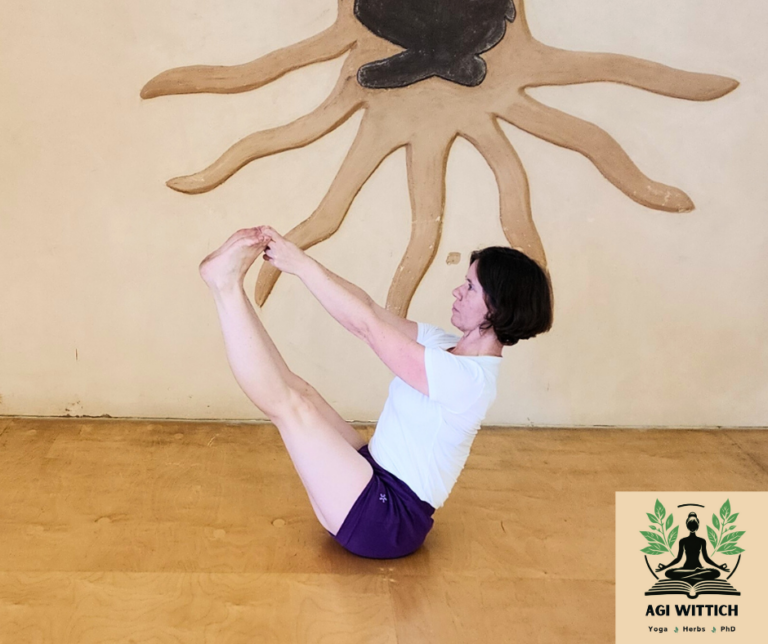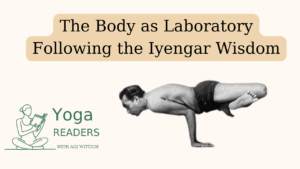
Pain as Guru: Embracing Challenge as the Path to Wisdom
“Pain is your guru.” — B.K.S. Iyengar, Light on Life This bold teaching from B.K.S. Iyengar often provokes discomfort—not just because it involves pain,

Recent research published in Evidence-Based Complementary and Alternative Medicine has added compelling scientific validation to what practitioners have long experienced: yoga offers profound benefits for mental and emotional well-being. This comprehensive study illuminates the mechanisms through which yoga practice influences our psychological health, providing valuable insights for both practitioners and healthcare professionals.
The study’s examination of yoga’s impact on stress response mechanisms reveals fascinating biological connections. Through regular practice, yoga demonstrates a remarkable ability to lower cortisol levels – our body’s primary stress hormone. This reduction isn’t merely a temporary state but represents a fundamental shift in how our bodies respond to stress. When we step onto our mats, we’re not just stretching muscles; we’re actively engaging in a practice that recalibrates our nervous system’s stress response.
Beyond the physiological markers, the research highlights yoga’s role in emotional regulation and resilience building. Practitioners participating in the study reported significant improvements in their emotional well-being, noting enhanced ability to navigate daily challenges with greater equanimity. This emotional stabilization appears to stem from yoga’s unique combination of physical movement, breath awareness, and mindful presence.
The study’s findings regarding sleep quality and energy levels are particularly relevant in our modern context, where sleep disturbances and fatigue increasingly affect mental health. Regular yoga practice was found to help establish healthier sleep patterns, creating a positive cycle that supports emotional well-being. As sleep quality improved, participants noticed increased daytime energy and mental clarity, suggesting yoga’s benefits extend well beyond the practice session itself.
One of the most intriguing aspects of the research concerns yoga’s impact on self-awareness. Through consistent practice, participants developed a more refined understanding of their mental and emotional states. This heightened awareness enabled them to recognize stress signals earlier and respond more effectively, preventing the escalation of tension and anxiety.
The study also explored the cumulative effects of regular practice. While immediate benefits were noted after individual sessions, the most significant improvements in mental health markers appeared in practitioners who maintained consistent practice over time. This suggests that yoga’s mental health benefits operate on both acute and chronic levels, offering both immediate relief and long-term resilience building.
Particularly noteworthy is the research’s examination of yoga’s impact on different aspects of mental well-being. Rather than focusing on a single measure, the study considered multiple dimensions of psychological health, including:
The research methodology included both objective measurements and subjective participant experiences, providing a rich, multifaceted understanding of yoga’s psychological benefits. This comprehensive approach helps explain why yoga can be such an effective complement to traditional mental health treatments.
For those considering incorporating yoga into their mental health routine, the study suggests that consistency matters more than intensity. Even moderate practice, when maintained regularly, showed significant positive impacts on psychological well-being. This finding is particularly encouraging for those who might feel intimidated by more athletic forms of yoga.
The implications of this research extend beyond individual practice to broader public health considerations. As healthcare systems worldwide grapple with increasing mental health challenges, yoga emerges as a cost-effective, accessible tool for psychological well-being. Its preventive benefits, in particular, suggest potential applications in public health strategies aimed at mental health maintenance and stress reduction.
The study also touches on the importance of the mind-body connection in mental health. Yoga’s integration of physical movement with mental focus appears to create synergistic effects that enhance its psychological benefits. This holistic approach aligns with growing recognition in the medical community of the interconnected nature of physical and mental health.
For current practitioners, this research provides scientific validation of their lived experience. For those considering starting a yoga practice, it offers evidence-based encouragement that their investment of time and effort can yield significant mental health returns. The study suggests that yoga’s benefits are both immediate and cumulative, offering support for both acute stress management and long-term emotional well-being.
Bowden, D., Gaudry, C., An, S. C., & Gruzelier, J. (2011). A Comparative Randomised Controlled Trial of the Effects of Brain Wave Vibration Training, Iyengar Yoga, and Mindfulness on Mood, Well-Being, and Salivary Cortisol. Evidence-Based Complementary and Alternative Medicine, 2012

“Pain is your guru.” — B.K.S. Iyengar, Light on Life This bold teaching from B.K.S. Iyengar often provokes discomfort—not just because it involves pain,

“To a yogi, the body is a laboratory for life, a field of experimentation and perpetual research.”—B.K.S. Iyengar This insight from Guruji is not

“Asana is perfect firmness of body, steadiness of intelligence, and benevolence of spirit.”—B.K.S. Iyengar This definition invites us to rethink what it means to
Agi Wittich is a yoga practitioner since two decades, and is a certified Iyengar Yoga teacher. Wittich studied Sanskrit and Tamil at the Hebrew University of Jerusalem, Israel, completing a PhD with a focus on Hinduism, Yoga, and Gender. She has published academic papers exploring topics such as Iyengar yoga and women, the effects of Western media on the image of yoga, and an analysis of the Thirumanthiram yoga text.